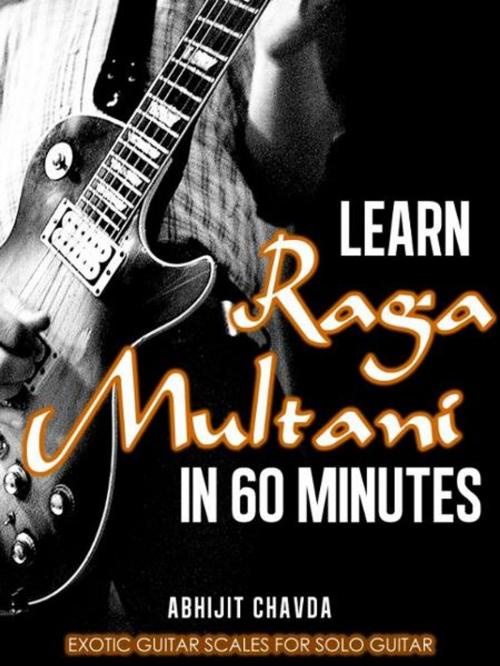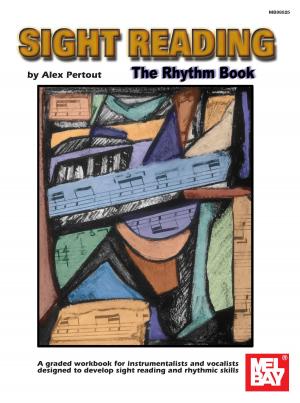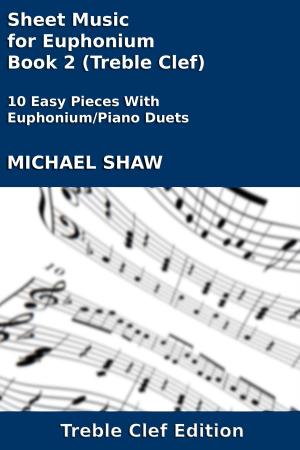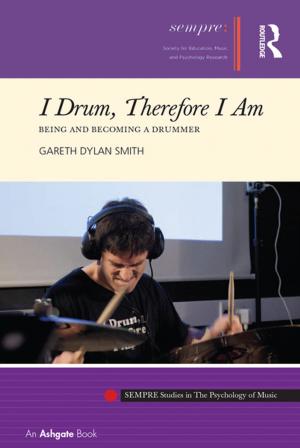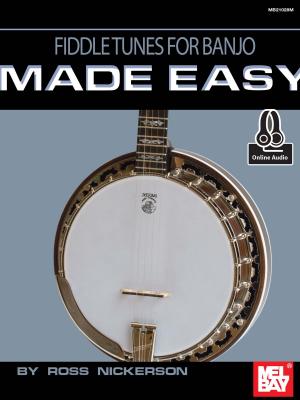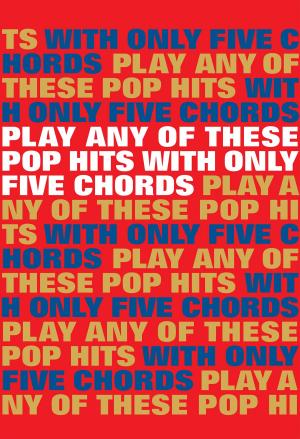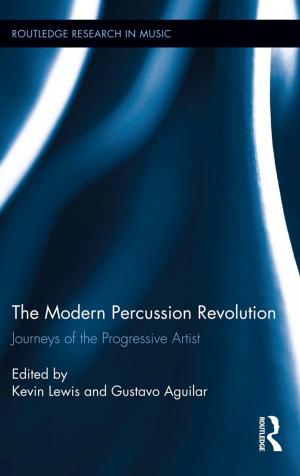Learn Raga Multani in 60 Minutes (Exotic Guitar Scales for Solo Guitar)
Nonfiction, Entertainment, Music, International, Instruments & Instruction, Guitar, General Instruments| Author: | Abhijit Chavda | ISBN: | 9781476154121 |
| Publisher: | Abhijit Chavda | Publication: | June 9, 2012 |
| Imprint: | Smashwords Edition | Language: | English |
| Author: | Abhijit Chavda |
| ISBN: | 9781476154121 |
| Publisher: | Abhijit Chavda |
| Publication: | June 9, 2012 |
| Imprint: | Smashwords Edition |
| Language: | English |
About the eBook Series (Exotic Guitar Scales for Solo Guitar):
If you are a creative guitarist and are seeking to expand your musical horizons, then you will love playing Indian Ragas.
Ragas are millennia-old musical constructs that originated in Indian music. They are widely used in Indian and Asian music, and were first introduced to Western audiences in the 1950s and 1960s by Ravi Shankar and the Beatles. The pioneering guitarist Davy Graham used Ragas extensively in his music, as did Jimmy Page of the legendary Rock Band Led Zeppelin. Many other artists and bands such the Rolling Stones the Doors also experimented with Raga music in the 1970s. Kula Shaker had great success in the 1990s with their brand of Raga Rock.
Exotic as they may appear to be, Ragas are surprisingly easy to understand and learn, and can be incorporated into any kind of Western music, be it Blues, Rock, Jazz, Folk, or any other genre.
Several contemporary Western artists experiment with Ragas, but Ragas remain an obscure branch of music because very little literature is available about them. This eBook series - Exotic Guitar Scales for Solo Guitar - is an attempt to redress this imbalance.
Each eBook in this series assumes that the reader has no prior knowledge of Ragas or Indian music, and therefore serves a two-fold purpose: firstly, to instruct the reader about Ragas in general – what a Raga is, what its aspects are, and how it should be played; and secondly, to instruct the reader about the particular Raga in question.
About Ragas:
Ragas consist of the following elements:
1. An ascending scale
2. A descending scale (which may not be the same as the ascending scale)
3. A predominant note or sonant
4. A subdominant note or consonant
5. Two drone notes
6. Characteristic melodic phrasings
7. A signature motif
Each Raga has a distinct character and personality, which is defined by the mood and the ambiance it creates.
About this eBook (Learn Raga Multani in 60 Minutes):
This eBook contains numerous fretboard diagrams, tabs, do-it-yourself examples, and practice and improvisation tips to cover the basics and get you started on the road to becoming an advanced exponent of Raga Multani. You need not have any prior knowledge of Ragas or Indian music. Advanced soloists will gain the most from this eBook.
Most readers will be able to read this eBook in an hour and start applying the concepts immediately. They will find a whole new musical experience opening up to them.
About Raga Multani:
Raga Multani is one of the “top drawer” Ragas; it is highly regarded by musicians for its wide melodic range and potential, and for its serious and weighty aspect. It is traditionally played in the afternoon. It evokes the emotions of tenderness, contentment, and melancholia. Some of the adjectives that describe the character of this Raga are: tender, melancholy, contented, manly, pleasing, loving, passionate, confident, calm, forceful, and active.
Raga Multani is named after the ancient north-western city of Multan, situated in present-day Pakistan.
Raga Multani is asymmetric in its ascending and descending scales. Its ascending scale is pentatonic, while its descending scale is heptatonic.
About the eBook Series (Exotic Guitar Scales for Solo Guitar):
If you are a creative guitarist and are seeking to expand your musical horizons, then you will love playing Indian Ragas.
Ragas are millennia-old musical constructs that originated in Indian music. They are widely used in Indian and Asian music, and were first introduced to Western audiences in the 1950s and 1960s by Ravi Shankar and the Beatles. The pioneering guitarist Davy Graham used Ragas extensively in his music, as did Jimmy Page of the legendary Rock Band Led Zeppelin. Many other artists and bands such the Rolling Stones the Doors also experimented with Raga music in the 1970s. Kula Shaker had great success in the 1990s with their brand of Raga Rock.
Exotic as they may appear to be, Ragas are surprisingly easy to understand and learn, and can be incorporated into any kind of Western music, be it Blues, Rock, Jazz, Folk, or any other genre.
Several contemporary Western artists experiment with Ragas, but Ragas remain an obscure branch of music because very little literature is available about them. This eBook series - Exotic Guitar Scales for Solo Guitar - is an attempt to redress this imbalance.
Each eBook in this series assumes that the reader has no prior knowledge of Ragas or Indian music, and therefore serves a two-fold purpose: firstly, to instruct the reader about Ragas in general – what a Raga is, what its aspects are, and how it should be played; and secondly, to instruct the reader about the particular Raga in question.
About Ragas:
Ragas consist of the following elements:
1. An ascending scale
2. A descending scale (which may not be the same as the ascending scale)
3. A predominant note or sonant
4. A subdominant note or consonant
5. Two drone notes
6. Characteristic melodic phrasings
7. A signature motif
Each Raga has a distinct character and personality, which is defined by the mood and the ambiance it creates.
About this eBook (Learn Raga Multani in 60 Minutes):
This eBook contains numerous fretboard diagrams, tabs, do-it-yourself examples, and practice and improvisation tips to cover the basics and get you started on the road to becoming an advanced exponent of Raga Multani. You need not have any prior knowledge of Ragas or Indian music. Advanced soloists will gain the most from this eBook.
Most readers will be able to read this eBook in an hour and start applying the concepts immediately. They will find a whole new musical experience opening up to them.
About Raga Multani:
Raga Multani is one of the “top drawer” Ragas; it is highly regarded by musicians for its wide melodic range and potential, and for its serious and weighty aspect. It is traditionally played in the afternoon. It evokes the emotions of tenderness, contentment, and melancholia. Some of the adjectives that describe the character of this Raga are: tender, melancholy, contented, manly, pleasing, loving, passionate, confident, calm, forceful, and active.
Raga Multani is named after the ancient north-western city of Multan, situated in present-day Pakistan.
Raga Multani is asymmetric in its ascending and descending scales. Its ascending scale is pentatonic, while its descending scale is heptatonic.
